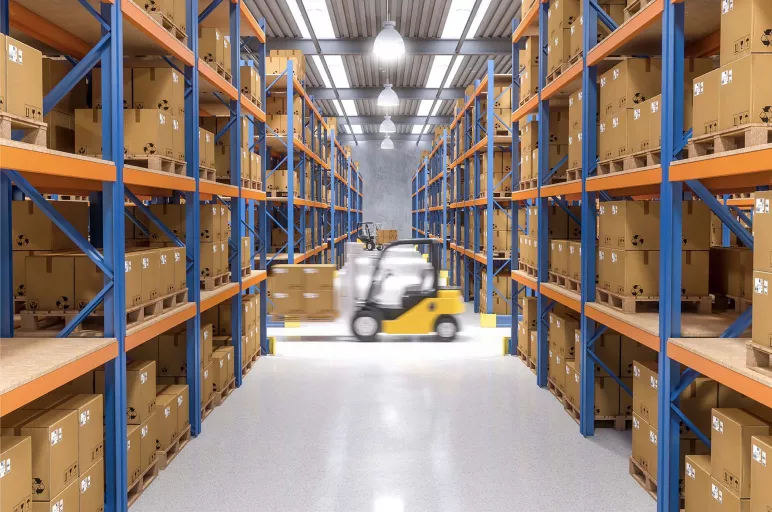Inflation Reduction Act: How to Secure Tax Credits for Clean Energy
How the Advanced Energy Project Credit can help lower the cost of transitioning to clean energy.

April 17, 2023 | Procurement Strategy
The Inflation Reduction Act (IRA) in the United States has set aside nearly $370 billion in climate and clean energy provisions. This includes a $10 billion tax incentive program known as the Advanced Energy Project Credit for companies that invest in decarbonization and other green energy projects to tackle climate change.
The clock is already ticking for companies to leverage these tax credits and funding from the U.S. government: concept papers are to be submitted between May 31 and July 31, 2023.

April 14, 2023 | Inventory Management
Perhaps, the one place in the entire supply chain network that has a lot of impact on the environment is the warehouse. And, to make matters worse, this place is often overlooked in many enterprises.
According to the World Green Building Council, the building sector has the greatest potential to reduce greenhouse gas emissions. In the U.S., buildings account for 41% of energy consumption, higher than the transportation industry that consumes 29% of the energy.
How the Advanced Energy Project Credit can help lower the cost of transitioning to clean energy.

March 22, 2023 | Procurement Strategy
Renewable energy procurement and carbon offsetting are increasingly gaining traction among global businesses. With the impact of climate change getting obvious and growing concern for the environment across the world, these two important concepts have come to fore. More global enterprises are looking at ways to reduce their carbon footprint and at the same time inch toward sustainability through various means available.

March 20, 2023 | Procurement Strategy
Organization would have to be transparent on how they track ESG goals, sustainability scores, and other green measure and deploying the right technology is key to implementing ESG-based framework. Learn more in this GEP blog.

March 06, 2023 | Energy & Utilities
Depleting fossil fuel reserves amid rising energy demand has increased the interest in biofuels. Switching to fuels made from waste residue also support the greenhouse gas and feedstock policy objectives in many countries. The biomass industry has expanded because many countries have increased the use of renewable energy sources in their power supply mix.
Rapid growth of Asian markets, new waste management policies and climate mitigation strategies in Europe are furthering boost this market.

February 28, 2023 | Automotives
Of late, there has been a lot of talk on ESG and sustainability. However, businesses have not done much to implement their plans.
They can no longer delay action, given the increased scrutiny of regulatory authorities. But where should they begin?
Their vehicle fleet is a good place to begin.
By replacing gasoline and diesel vehicles with electric vehicles, they can reduce their carbon footprint and take a decisive first step toward sustainability.

February 20, 2023 | Supply Chain Strategy
The computer hardware industry connects all other industries from within and across through information technology. Almost everything runs on IT; the more we get interconnected through IT, the more we grow dependent on it.
The hardware supply chain is complex. There are interconnected systems of components, software applications and services that make up the entire computing system, secured by a wide network of partners and suppliers.

February 17, 2023 | Procurement Strategy
How many businesses are today actively pursuing sustainability goals?
There is no clear answer.
Why?
Because the data may not present the true picture, given that many organizations are merely paying lip service and failing to implement their sustainability plans.
As consumers and investors become increasingly focused on ESG issues, it’s important to ensure that supply chains are transparent and accountable. This paper discusses how that can be achieved.